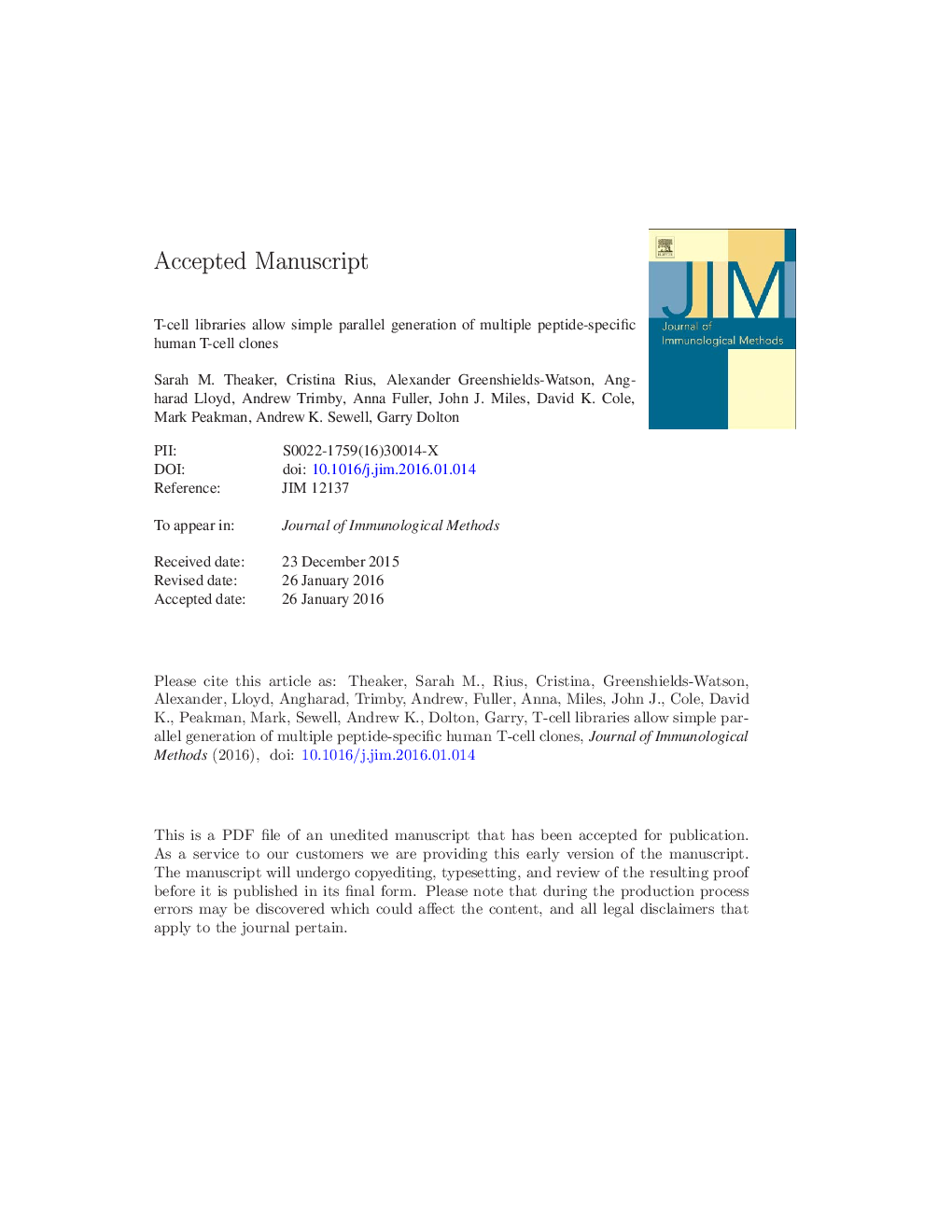| Article ID | Journal | Published Year | Pages | File Type |
|---|---|---|---|---|
| 8417276 | Journal of Immunological Methods | 2016 | 25 Pages |
Abstract
Isolation of peptide-specific T-cell clones is highly desirable for determining the role of T-cells in human disease, as well as for the development of therapies and diagnostics. However, generation of monoclonal T-cells with the required specificity is challenging and time-consuming. Here we describe a library-based strategy for the simple parallel detection and isolation of multiple peptide-specific human T-cell clones from CD8+ or CD4+ polyclonal T-cell populations. T-cells were first amplified by CD3/CD28 microbeads in a 96U-well library format, prior to screening for desired peptide recognition. T-cells from peptide-reactive wells were then subjected to cytokine-mediated enrichment followed by single-cell cloning, with the entire process from sample to validated clone taking as little as 6Â weeks. Overall, T-cell libraries represent an efficient and relatively rapid tool for the generation of peptide-specific T-cell clones, with applications shown here in infectious disease (Epstein-Barr virus, influenza A, and Ebola virus), autoimmunity (type 1 diabetes) and cancer.
Keywords
Zaire Ebola viruspMHCIGRPAPCGAD65PhytohemagglutininEn251CrMAGEInSbIMP-3PHAEngrailed-2PBMCFBSELISPOTglutamic acid decarboxylasehaemagglutininEnzyme-linked immunospot assayHuman leukocyte antigenMelanoma-associated antigenAntigen presenting cellsHLAInfluenza AEBVELISAEnzyme-linked immunosorbent assayFlufoetal bovine serumDendritic cellperipheral blood mononuclear cellsmajor histocompatibility complexMHCNucleoproteinEpstein–Barr virusmatrix proteinChromium-51Glycoprotein
Related Topics
Life Sciences
Biochemistry, Genetics and Molecular Biology
Biotechnology
Authors
Sarah M. Theaker, Cristina Rius, Alexander Greenshields-Watson, Angharad Lloyd, Andrew Trimby, Anna Fuller, John J. Miles, David K. Cole, Mark Peakman, Andrew K. Sewell, Garry Dolton,
